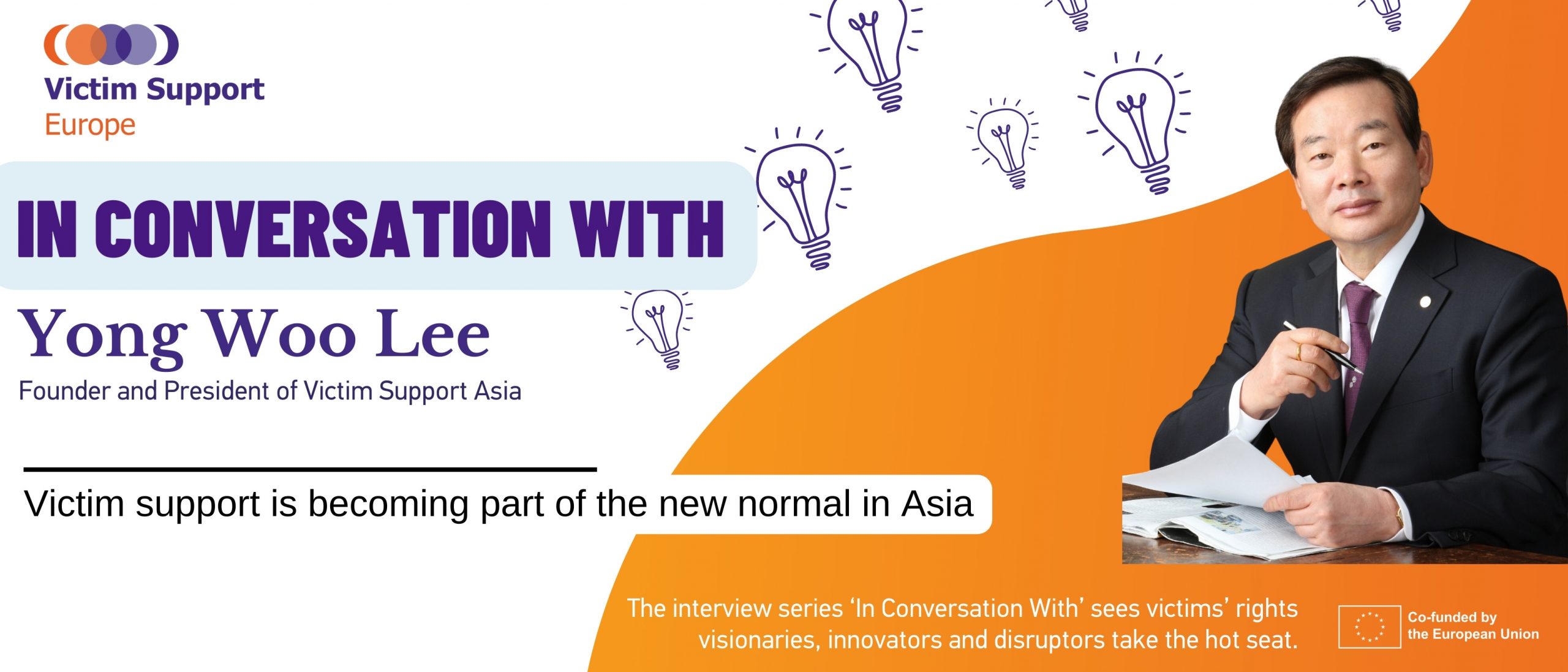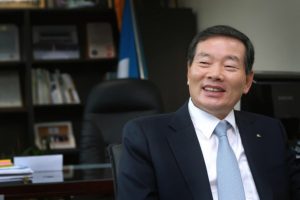
IN CONVERSATION WITH Victim Support Asia’s Founder and President Yong Woo Lee
Yong Woo Lee’s CV is arguably one of most impressive of any CEO in the Republic of Korea. He has served as the leader of Seoul’s Han Ga-ram Rotary Club, chaired the influential Gimpo Chamber of Commerce and Industry, and played significant roles in various committees and boards, including the Board of Victim Protection Committee of the Ministry of Justice, the National Police Agency Investigation Policy Committee, and the Board of the National Assembly Human Rights Commission. In recognition of his immense contributions to the development of national society and his efforts in enhancing the legal culture, he has been honoured with both the prestigious Korea Industrial Merit and the Korea National Medal of Merit (Dong Baek-Jang). In addition, in 2015, he published “Who will wipe away their tears (Report on the Status of Victims of Crime)?“. Currently, he is chairman of the Korea Crime Victim Support Center (KCVC), president of the Korea Terrorism Victim Support Association (KTVSA) and the founder and president of Victim Support Asia (VSA).
But that’s not how Mr.Lee wants to be known: “I would rather be known as a successful victim support volunteer, than a successful CEO,” he tells the VSE’s Marina Kazakova for the ‘In Conversation With’ interview series last week. Our series see’s victims’ rights visionaries, innovators and disruptors take the hot seat.
The old proverb, “Necessity breeds invention,” resonates strongly in today’s world, where a global crisis encompasses escalating crime, conflicts, climate change and political instability, affecting people worldwide. In this context, support has become the ‘new currency’ and guiding ethos for organisations, as we unite our efforts to sustain society by assisting those in need.

Yong Woo Lee
In the ever-evolving landscape of Asia’s economic growth, a wave of social changes swept across the land as new industrialised and developing countries emerged onto the global stage. Along with this economic growth came an unfortunate side effect: an increase in violent crime cases. The rapid expansion of international job opportunities led to a surge in immigration and long-term business trips, leaving countless citizens vulnerable and unprotected when it came to victim support.
Amidst this backdrop, a curious observer noticed something remarkable happening in other parts of the world. “Organisations like Victim Support Europe were successfully tackling the challenges of protecting victims of crime. This got me thinking: shouldn’t Asia have its own entity in the form of Victim Support Asia?”, Yong Woo Lee recalls.
Driven by a desire to make a difference and armed with a vision, Victim Support Asia was born. The mission was clear: to provide the much-needed support and protection for the victims of violent crimes throughout the vast region. “I knew that this would require a united front, joining forces with the experienced advocates in Europe and North America”, he continues. “And so, Victim Support Asia set out on a quest to promote the establishment and development of victim rights and services throughout Asia.”
Victims’ rights and laws in Asia present a complex picture of both progress and challenges. “Since the UN Declaration of Justice for Victims of Crime and Abuse of Power in 1985, a modest number of Asian countries, approximately ten, have shown interest in victim support initiatives”, says Mr.Lee. “These countries have taken steps towards establishing societies of victimology and victim support centers. However, the overall state of victim support in the region remains somewhat lacking, as these efforts are still grappling with meager resources and limited public awareness”.
In 2019, VSA held its first conference with the participation of 21 Asian countries. The conference marked the culmination of a two-year preparation process that began in 2017 and resulted in the appointment of the president, vice president, and seven board members. Since then, VSA continues to organise annual conferences to promote and revitalise its mission of supporting victims in Asia.

2019 VSA Conference
But wait, there’s more to VSA than just conferences! Victim Support Asia actively engages in information sharing and provides practical support to victims of crime from diverse Asian nationalities who find themselves in foreign lands. One notable initiative is the VSA Victim Support Award, which allocates a generous $10,000 Victim Support Fund on a yearly basis. This financial aid not only offers tangible assistance to victims but also serves as a strategic tool to promote VSA and boost the morale of its dedicated board members.
Driven by Victim Support Europe’s vision of comprehensive victim support, VSA aims to implement this collaborative system of support across all Asian countries, fostering a region-wide commitment to assisting and empowering victims in their journey to recovery. “For now, VSA established collaborations with multiple sectors to support victims of crime”, says Mr.Lee. “With police: informing victims of their rights and establishing separate victim protection rooms during investigations. With courts: accompanying victims, monitoring trials, and ensuring their right to make statements. With education and medical care: offering rehabilitation programs, educational subsidies, employment support, and covering moving expenses.”
The conversation closed with Mr.Lee sharing his thoughts on the VSA’s journey thus far: “Establishing Victim Support Asia has proven to be a formidable task, marked by the complexities arising from religious, cultural, and political differences in many Asian countries. As the saying goes, “well begun is half done”. Despite the challenges encountered, I have a steadfast belief that VSA will ultimately overcome these conflicts and emerge as a successful entity. Transformative change takes time, patience, and a collective commitment to the cause.”

